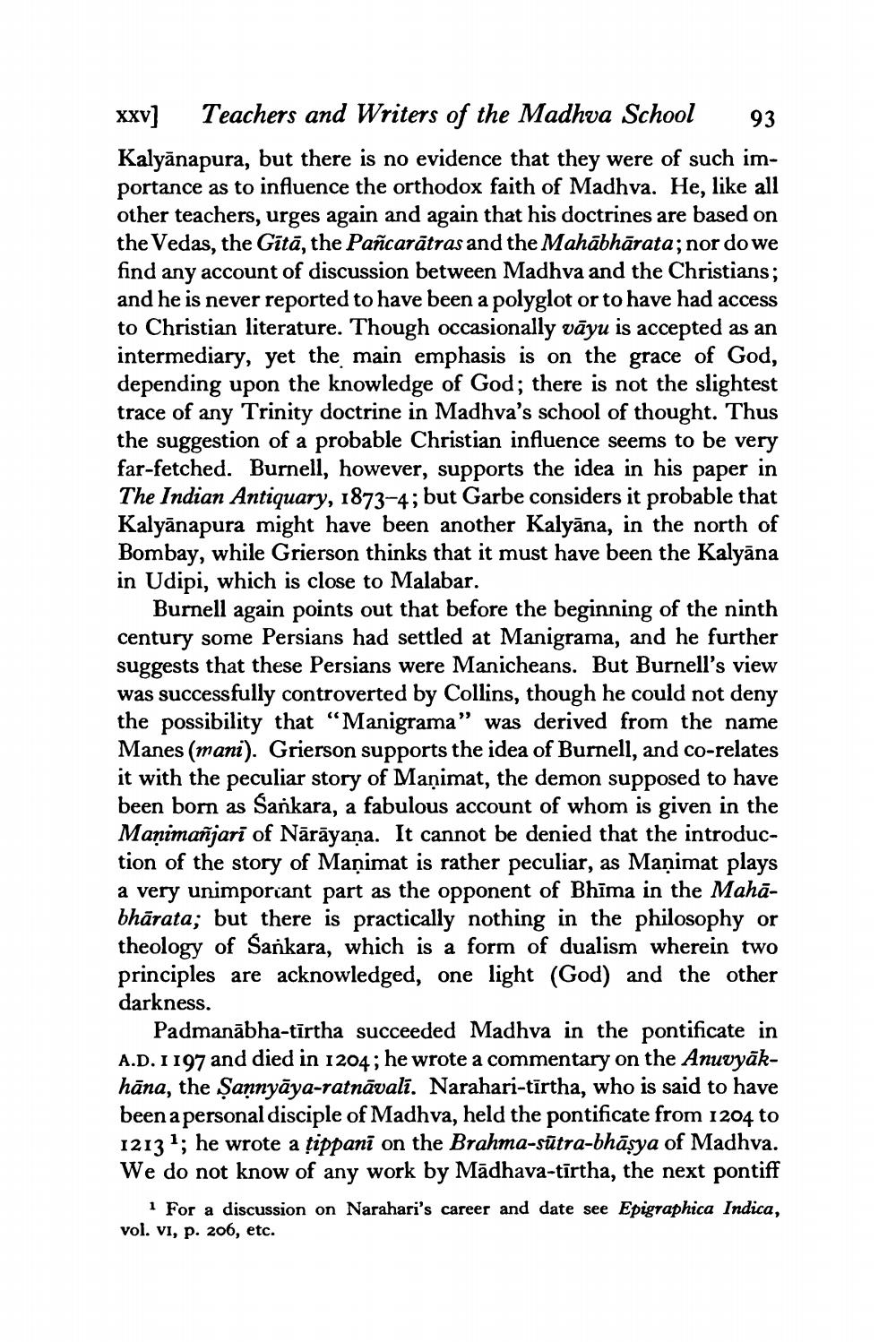________________
xxv] Teachers and Writers of the Madhva School 93 Kalyānapura, but there is no evidence that they were of such importance as to influence the orthodox faith of Madhva. He, like all other teachers, urges again and again that his doctrines are based on the Vedas, the Gitā, the Pañcarătras and the Mahābhārata; nor do we find any account of discussion between Madhva and the Christians; and he is never reported to have been a polyglot or to have had access to Christian literature. Though occasionally vāyu is accepted as an intermediary, yet the main emphasis is on the grace of God, depending upon the knowledge of God; there is not the slightest trace of any Trinity doctrine in Madhva's school of thought. Thus the suggestion of a probable Christian influence seems to be very far-fetched. Burnell, however, supports the idea in his paper in The Indian Antiquary, 1873-4; but Garbe considers it probable that Kalyānapura might have been another Kalyāna, in the north of Bombay, while Grierson thinks that it must have been the Kalyāna in Udipi, which is close to Malabar.
Burnell again points out that before the beginning of the ninth century some Persians had settled at Manigrama, and he further suggests that these Persians were Manicheans. But Burnell's view was successfully controverted by Collins, though he could not deny the possibility that “Manigrama" was derived from the name Manes (mani). Grierson supports the idea of Burnell, and co-relates it with the peculiar story of Manimat, the demon supposed to have been born as Sankara, a fabulous account of whom is given in the Maạimañjarī of Nārāyaṇa. It cannot be denied that the introduction of the story of Manimat is rather peculiar, as Maņimat plays a very unimporiant part as the opponent of Bhīma in the Mahābhārata; but there is practically nothing in the philosophy or theology of Sankara, which is a form of dualism wherein two principles are acknowledged, one light (God) and the other darkness.
Padmanābha-tīrtha succeeded Madhva in the pontificate in A.D. 1197 and died in 1204; he wrote a commentary on the Anuvyākhāna, the Şannyāya-ratnāvali. Narahari-tīrtha, who is said to have been a personal disciple of Madhva, held the pontificate from 1204 to 1213 ?; he wrote a ţippani on the Brahma-sūtra-bhāsya of Madhva. We do not know of any work by Mādhava-tīrtha, the next pontiff
i For a discussion on Narahari's career and date see Epigraphica Indica, vol. vi, p. 206, etc.




